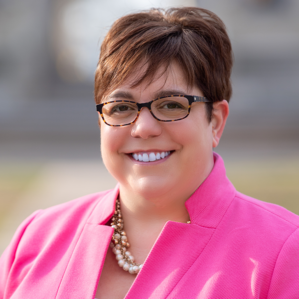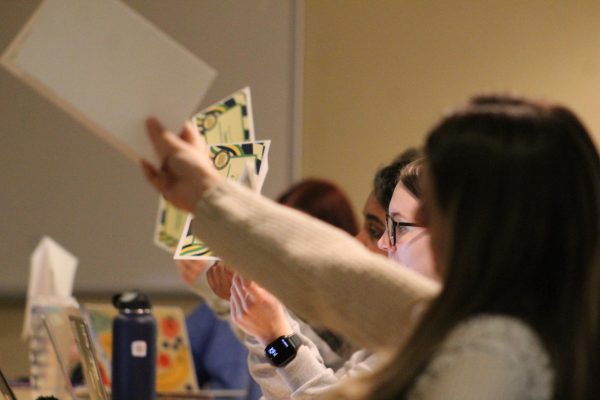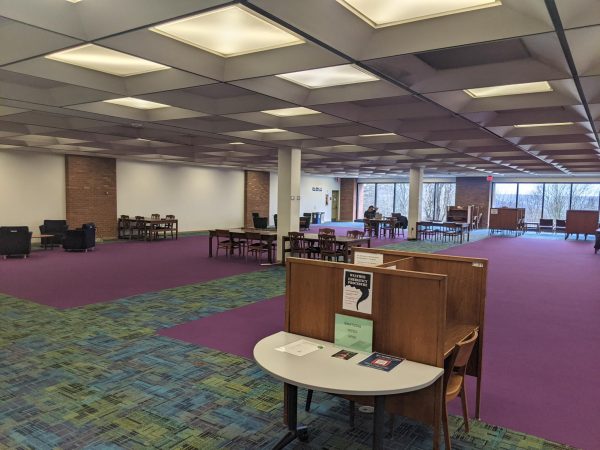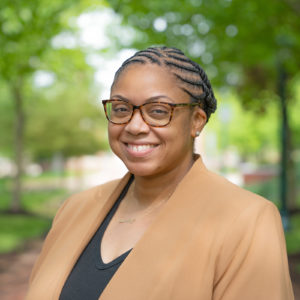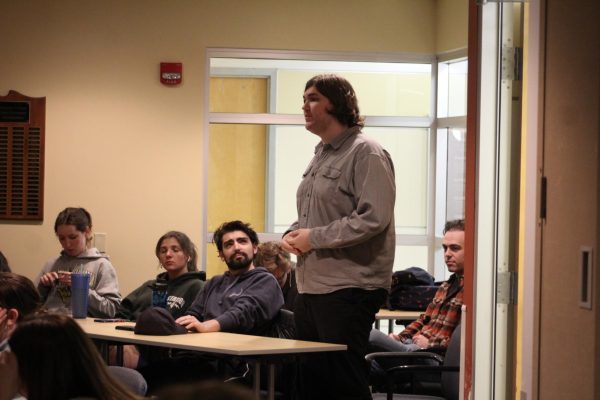Bonners to request community partners pay for services
Allegheny College’s Bonner Program, which provides community service to Crawford County nonprofit agencies and other local sites, has begun considering requesting those partners provide financial compensation for its services, according to Director of Civic Engagement Dave Roncolato.
Roncolato said the move to have community nonprofits subsidize the Bonner Program came from the college’s budget problems. Bonner Leaders, who are students who volunteer through the program without receiving the service-based scholarship, are paid via Federal Work-Study.
“This year, we’ll be investigating the question of whether agencies have the capabilities to help subsidize the cost of off-campus work study positions,” said Roncolato.
Some of the agencies —if they have to make a contribution —they have big budgets, it won’t matter.
— Dave Roncolato
Bonner Program Coordinator Ellen Bach declined to comment.
Roncolato said Civic Engagement hopes to know whether or not programs will provide compensation by the end of the fall 2016 semester, so the college can communicate that decision with community partners by the beginning of spring 2017.
Bonner Program Director Charmaine Wilson said the college hopes to have systems of compensation set up by the start of the 2017-18 academic year.
Robert Hackett, president of the Corella & Bertram F. Bonner Foundation, said the issue lies in how Work-Study funds are distributed. He said the federal government subsidizes up to 75 percent of the cost of Work-Study, leaving the other 25 percent to be paid for by the school, a community partner or another organization.
According to the Sept. 7, 2016, minutes of the college’s Finance and Facilities Committee, the college paid $877,000 to students receiving Work-Study in the 2015-16 fiscal year. It is unclear if that number includes funds provided by the federal government.
Allegheny College spent over $2.2 million in student wages in the same fiscal year, including Work-Study, campus employment, summer wages and stipends.
Roncolato said the college will discuss financial compensation with all agencies at which Bonner Leaders work, including Women’s Services, Inc., and Active Aging.
Wilson said she, Roncolato and Bach have had one in-person conversation with leaders of multiple community agencies about financial compensation. Wilson said the office has gotten varied feedback from agencies on the request.
“The difficult part is that there’s three of us in the office that work with Bonner, and each of us get different information,” Wilson said.
According to the “Dear Colleague” letter distributed by the U.S. Department of Education in May 1998, the federal government can pay the full wages of students employed as tutors in literacy programs.
Armendia Dixon, executive director of the Crawford County Literacy Council, which controls the Crawford County READ Program, said the college requested the council pay 10 percent of the wages of students employed with the program.
“We certainly have no problems with that,” Dixon said.
Dixon said the council is open to subsidizing the Bonner Leaders’ wages as they are “very qualified,” and the quality of work they provide may warrant paying the college for the students’ service.
While the Crawford County READ Program is willing to subsidize the cost, Roncolato said a potential complication of asking for such compensation is the budgetary constraints of Bonner sites. However, he said some agencies can afford to compensate the college for work provided through the program.
“Some of the agencies—if they have to make a contribution—they have big budgets, it won’t matter,” Roncolato said.
Hackett said the Bonner Program does not prevent colleges from requesting financial compensation, and that it is not uncommon.
According to Roncolato, the college may request partners pay between 10 percent and 25 percent of the wages of students.
Wilson said the exact amount of compensation the program will request from local agencies is not clear yet.
“It could be 10, it could be 20, 50,” Wilson said. “I don’t know.”
Regardless of the amount of compensation, Roncolato said he believes financial compensation is justified by the contributions of Bonners.
“We think our students’ contributions are worth a small [financial] contribution from the agencies,” Roncolato said. “But we don’t want to do it in a way that would offer a hardship for the agency.”
Roncolato said there are many differences between volunteers and those involved in the Bonner Program. While volunteers are generally unpaid, Bonners receive either a scholarship or Work-Study, and Roncolato said the students in the program fill a role volunteers at agencies would not.
“Usually, they meet a need that would not otherwise be met,” Roncolato said.
Hackett said the program should not be construed as a volunteer program.
“We never use the term ‘volunteerism,’” Hackett said. “It is a job.”
Bonner Leader Sydney Fernandez, ’17, said she and other Bonners are invested in community service, and the program requesting financial compensation will detract from the spirit of service. She said the Bonners voiced their concerns.
“It wasn’t a positive response,” Fernandez said.
While receiving subsidies from community partners may alleviate budgetary problems, Roncolato said this process is in its preliminary stages.
“These conversations have begun, but nothing’s been decided,” Roncolato said. “We think it’s really important to listen and respond to what [our partners’] needs are.”




